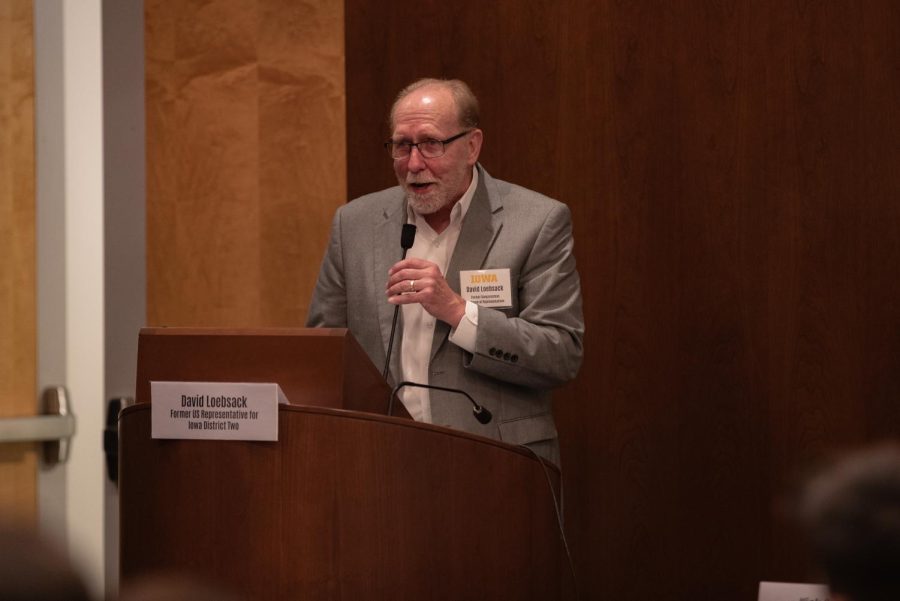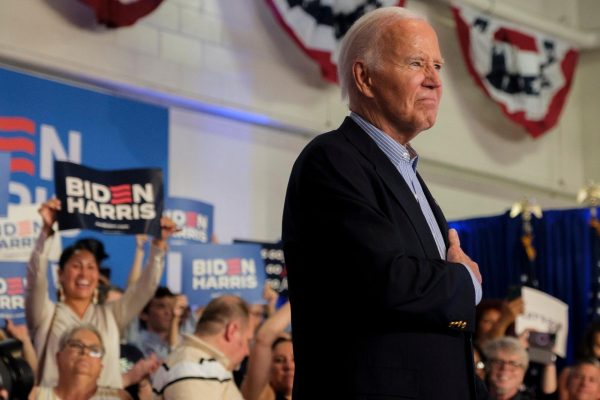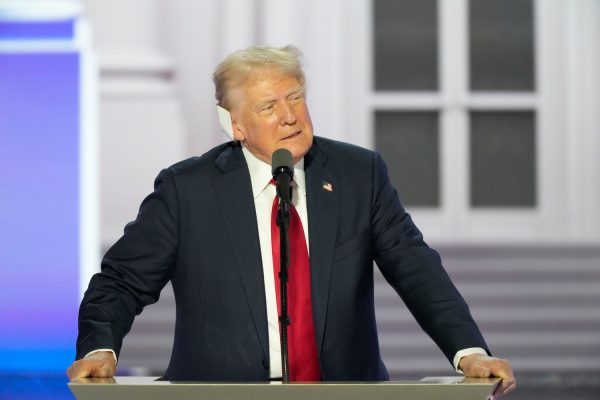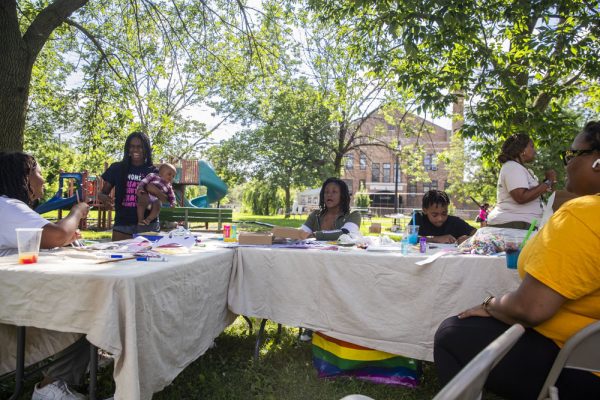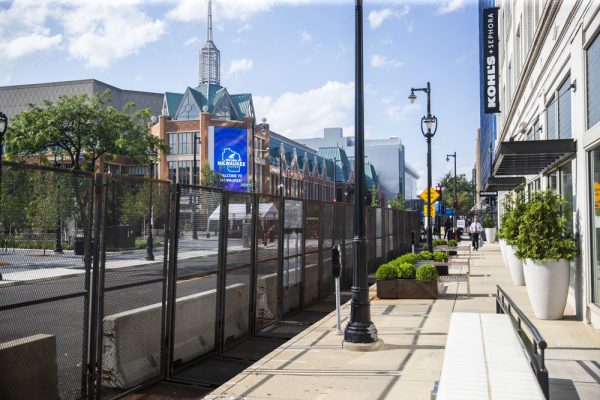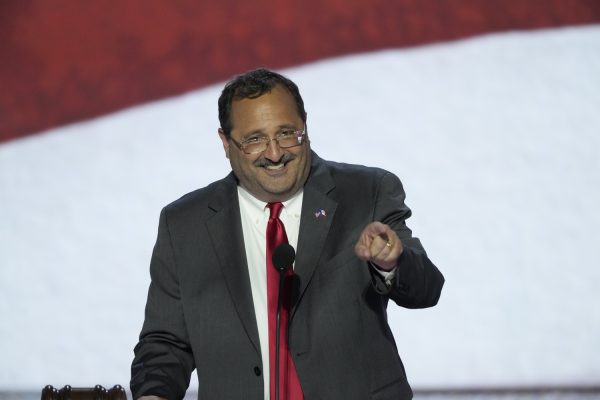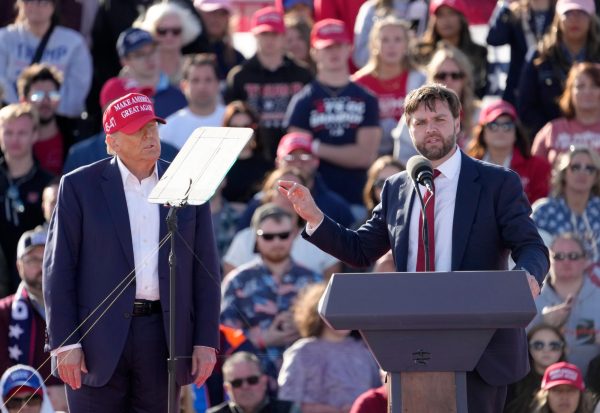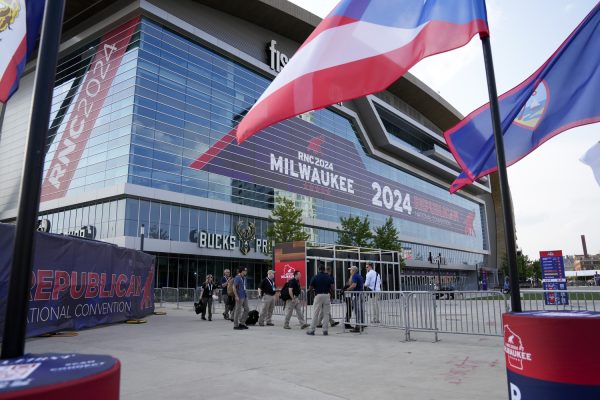Former Rep. Dave Loebsack reflects on career in Congress in conversation on future of Democratic Party
Loebsack spoke as part of a University of Iowa series on policy challenges. He discussed the messaging of the Democratic Party with current elected Democratic officials.
October 14, 2021
Former Rep. Dave Loebsack, D-Iowa, said America’s diverse population and variety of backgrounds makes it impossible for all Democrats or all Republicans to be on board with the same political strategies.
The different approaches to governing and campaigning as Democrats was on display in a conversation at the Levitt Center on Thursday night.
Loebsack said his heart is with a large infrastructure package, but that he is concerned about the impacts of policies moving left in a way that could hurt Democrats in upcoming elections.
“We have so many different parts of this country, ethnically, racially and otherwise, and congressional districts are not all the same,” Loebsack said.
Currently division in the Democratic Party has caused disagreement about the infrastructure bill, which has passed out of the U.S. Senate with bipartisan support, but has yet to pass in the House.
The discussion was second in a series on policy challenges for Iowa and the U.S. in collaboration with the state Board of Regents. The next topic will be the future of the Republican Party in a discussion on Nov. 10.
RELATED: Trump’s hold on Republican party remains
Loebsack is now retired after representing Iowa’s 2nd Congressional District in the U.S. Congress from 2007 to 2021. He joined a panel of other current elected officials and organizers to talk about the future of the Democratic Party.
Stacey Walker, a Linn County Supervisor, said moderate progress isn’t working, and taking more action will translate into good politics.
“I really hope the Democratic Party moves away from this idea of saying only what polls well,” Walker said.
Walker said the Democratic Party has to own itself and define itself, rather than playing defense. For example, Walker said, explaining why universal health care is beneficial to constituents, rather than promoting what he called vague terms like “quality, affordable health care.” He also said people of color in the Democratic Party don’t have the luxury of waiting on Democrats to take action on issues that impact them.
Panelists said Democrats tend to over intellectualize issues, rather than communicating clear policy positions.
“One thing that the Republicans are very good at are the three, four word messages that people really relate to. And too often — and probably I’m doing right now — we go into a thesis, to describe what we want to talk about and why we want to talk,” said Rep. Eric Gjerde, D-Cedar Rapids. “And that’s one thing as a Democratic Party and as an individual, I want to be able to communicate with my constituents, very directly, to tell them here’s how the legislation affects you on your doorsteps.”
As moderate and progressive Democrats continue to debate the reconciliation bill, Loebsack said the partisan infighting needs to be resolved, because the longer it goes on, the worse Democrats look, he said.
“They should have done this infrastructure bill weeks ago,” Loebsack said. “It was done in the Senate, could have been done in the House. Progressives were supposedly concerned that some of the so-called moderates would not go along with them on the bigger package. In the end, we’re not going to get a bigger package or we are and it’s going to be smaller.”



